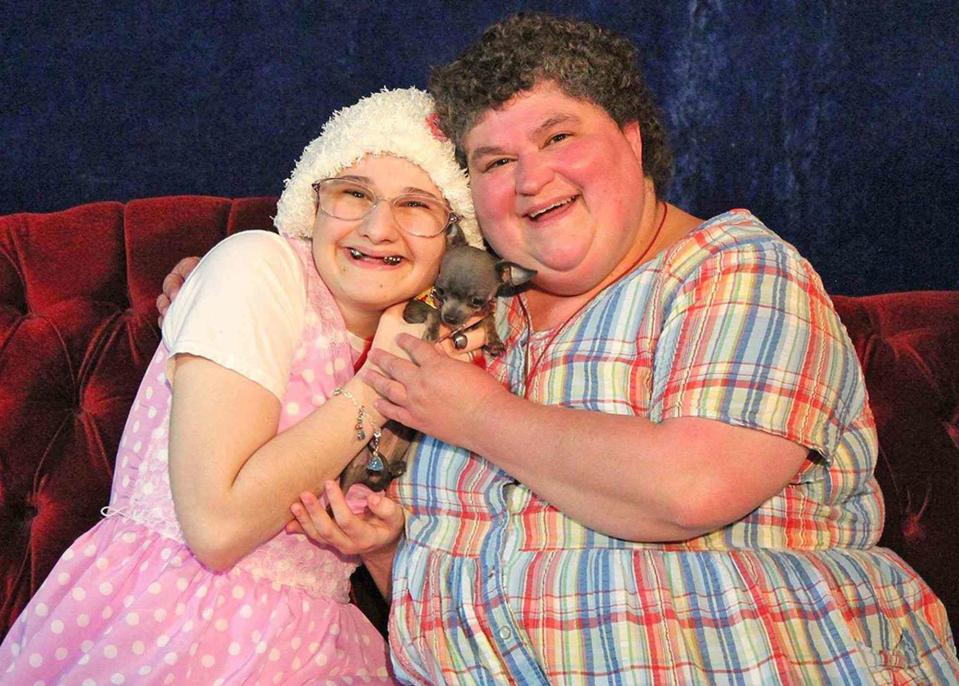Gypsy Rose Blanchard Was a Victim of Munchausen by Proxy — An Expert Explains the Disorder
Gypsy Rose Blanchard's mother allegedly had Munchausen by proxy, which is "a form of child abuse," Dr. James Schneider tells PEOPLE

The early release of Gypsy Rose Blanchard — who was sentenced to 10 years in prison after she pleaded guilty for her role in the killing of her mother, Clauddine “Dee Dee” Blanchard — has thrust the disorder Munchausen by proxy into the spotlight.
Gypsy, 32, says caused the disorder led her mother to mentally and physically abuse her, subjecting her to unnecessary medical procedures to the point where Gypsy felt killing Dee Dee was her only option to escape.
Munchausen by proxy — sometimes called Factitious Disorder, according to the Mayo Clinic — was “first described in 1977 to describe children whose caregiver (most commonly mothers) produce histories of illness to their children and who support such histories by fabricated physical signs and symptoms, or even by altering laboratory tests,” Dr. James Schneider, Chief of Pediatric Critical Care Medicine, Cohen Children's Medical Center, tells PEOPLE.
“It is also considered in situations where the adult caregiver induces injury in the child, and thus is a form of child abuse. It can occur in a dependent adult as well,” Dr. Schneider tells PEOPLE.

Gypsy-Rose Blanchard-Anderson/Instagram
Gypsy Rose Blanchard.“Terminology commonly used for this condition is ‘medical child abuse,’" Dr. Schneider adds, "because of the potential or real harm the child suffers.”
Munchausen by proxy is “considered a psychological disorder, although the exact cause is unknown,” Dr. Schneider tells PEOPLE. “The caregiver generally does not benefit from feigning or inducing harm to a child. They may seek attention as motivation.”
But to be clear, he says, “The child is the victim of this disorder, where the caregiver is the perpetrator.”
As Gypsy told PEOPLE, “It was panic, desperation,” that caused her to decide to kill her mother. “I was facing yet another surgery pretty soon, and I really did not want to have the surgery,” she explained.
Related: Who Is Gypsy Rose Blanchard's Dad? All About Rod Blanchard
For years, Dee Dee had subjected Gypsy to unnecessary medical procedures and convinced her daughter and others that she had a series of illnesses. That follows what Dr. Schneider — who did not treat Gypsy or her mother — tells PEOPLE about how those with Munchausen by proxy often interact with medical professionals.
“Many of the symptoms of the child are non-specific, and often depend on the report given by the caregiver (i.e. gastrointestinal symptoms like vomiting or diarrhea), but symptoms may be based on clinical findings of a child who presents with an illness or injury,” he says.
“Symptoms involving any organ system may be part of the patient's presentation. Some warning signs," he explains, "include when the medical history is not consistent with the clinical findings observed, when the history provided by various caregivers are inconsistent with each other, when the illness is recurrent or prolonged, unusual, or does not respond to appropriate treatment as expected, when a child has been seen by many physicians for the same unusual complaint without any resolution, and when symptoms only occur in the presence of a particular caregiver.”
The syndrome has made headlines before — such as when Eminem accused his mother, Debbie Nelson, of having the disorder in his 2002 hit “Cleanin’ Out my Closet.”
In it, Eminem raps that he’s a “victim of Münchausen's Syndrome,” adding, “My whole life I was made to believe I was sick when I wasn't.”
The lyrics led Nelson to file a defamation suit against her son.
Related: Gypsy Rose Blanchard Accused a Relative of Sexual Abuse. His Response Was Shocking (Exclusive)
For Gypsy, the case was so severe she felt like she had no other option to escape.
“It's not like I didn't think about every other option besides murder. I did,” Gypsy told PEOPLE. "Nobody will ever hear me say I'm glad she's dead or I'm proud of what I did.”
She added. “I regret it every single day."
Never miss a story — sign up for PEOPLE's free daily newsletter to stay up-to-date on the best of what PEOPLE has to offer, from celebrity news to compelling human interest stories.
For more People news, make sure to sign up for our newsletter!
Read the original article on People.

